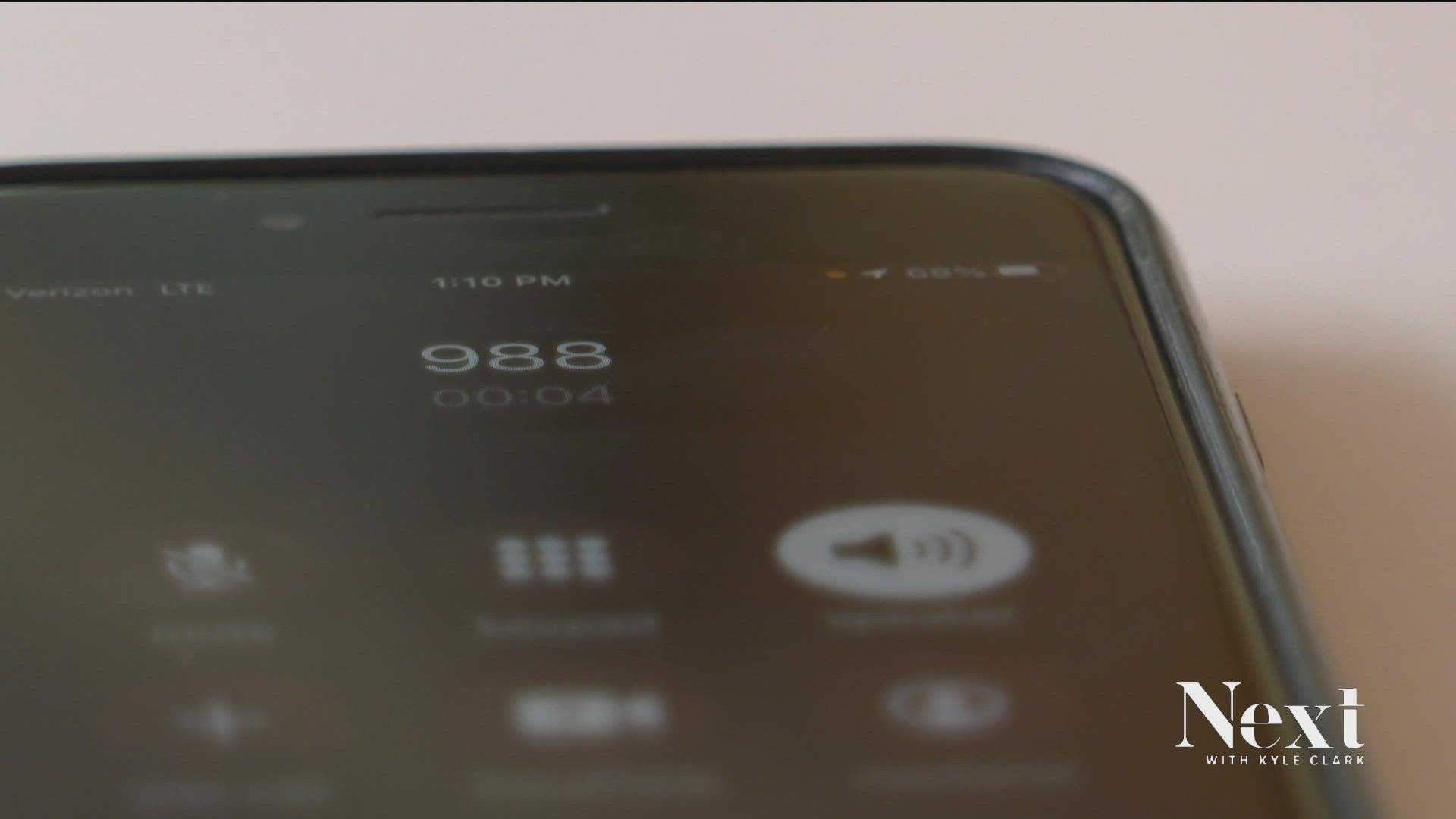DENVER — Agencies providing emergency and crisis services, like so many other businesses, are struggling to stay well staffed. Also like other industries, they have turned to remote work to help with recruitment.
Let's take a look at how that works in an emergency situation, and how a caller's personal information is protected.
How many people are working remote?
Rocky Mountain Crisis Partners runs Colorado Crisis Services.
CEO Bev Marquez said that 70% of their workforce is working remote and 15% of workers are in a hybrid situation. The option to work in person is still there.
Why work remote?
Work-from-home became necessary during the height of the COVID pandemic, when the need for mental health help skyrocketed. As that need went up, so did the demands on staff. This led to challenges recruiting and hiring.
With launch of the 988 national hotline earlier this month, Marquez said they anticipate more calls and the need to scale up to an even bigger staff -- from 193 to 240 -- for the first fiscal year.
All of those factors combined are why Crisis Services said they started working on long-term plans for remote work to stay competitive.
How does it work?
To protect a caller's privacy and their personal information, Marquez said employees send in pictures of HIPAA-compliant work spaces.
They use noise cancelling headsets and set up an office where others can't hear their conversation or see their computer screens, preferably in an area with a door.
Having a good internet connection is a key. Since Crisis Services doesn't cover the costs for home internet upgrades for their employees, those who can't meet the requirement have the option to work in person.
"That seems to be working well for our quality, retention, and then to rebuild sheer numbers we need on the frontline," said Marquez.
Marquez said this allows them to recruit from across the state and expand their pool of candidates, especially as other states are recruiting in Colorado for their 988 staff.
It isn't a problem now if they didn't want to move Denver, didn't need to be in Denver, or couldn't afford to live in Denver, Marquez said.
She said making sure people are connecting with the organization, connecting with each other and working on effective training is a work in progress. The issues they've faced are mostly associated with technology.
Emergency and Crisis Services are intense work. Supervisors will check in with employees regularly. This involves paying attention to those who repeatedly call out sick and make sure they are OK, as well as putting other infrastructure in place to make sure their team is taken care of.
What about those calling 911 in Denver?
Denver's dispatch center is so short staffed, some people are put on hold when they call 911.
Not every call position can be work from home.
"911 is a difficult job to do remote," Director of Emergency Communication Andrew Dameron said. "A lot of technology required, a lot of security. They go into work in the national criminal justice database, that sort of thing. Difficult to do at home."
At the same time, Dameron said they needed to change up their recruitment. To do this, they found a way to make non-emergency communication technicians remote.
"Fifty-five to 60% of total call volume that comes through Denver 911 actually comes from our non-emergency line. These are calls where police may be needed, fire may be needed, EMS may be needed, but it's not a life or death emergency," Dameron explained.
In order to manage all those calls that have up until now gone to the 911 call takers, they created a non-emergency communications position. That position can be done from home.
Currently, nine people are working remote, and Dameron hopes to hire six more.
He said these dispatchers take calls on a separate phone system, document the information, and work with 911 call takers.
"My car got broken into over the weekend," Dameron said. "I have no suspect information. I don't know when exactly it happened. But the window is smashed in and my CD player is missing. That is something that should go to the non-emergency line. Not a life or death emergency. So, those folks in that kind of position shouldn't dial 911."
He said recruitment is still a big challenge, both in Denver and across the country. Even so, these new positions have done two good things for the team.
One, he said, is that having them increases the chance a 911 call taker will be ready and available when that next emergency call comes in and won't already be on a non-emergency call.
The other is that having the second group helps reduce burn out.
"911 call takers go from one emergency call to the next, 10 to 12 hours with a few breaks," Dameron said.
The dispatch center is so short-staffed, sometimes people call 911 and find themselves on hold. This can be anywhere from 30 seconds to a couple of minutes. Dameron said to stay on the line. If you hang up and call again you go to the back of the queue.
The city trusts their remote workers to set up their offices in the appropriate way. They're also working on hiring more in-person staff and doubling their capacity for training this fall.

